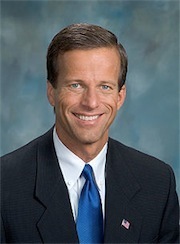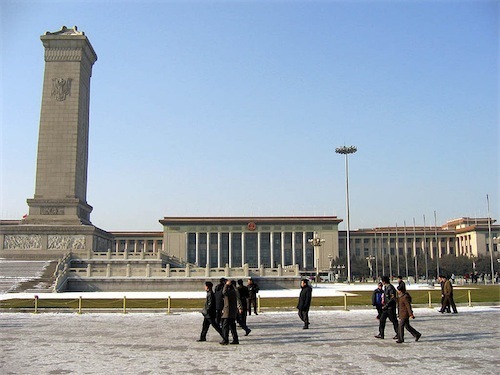Matthew Yglesias's Blog, page 2437
January 27, 2011
Inequality and the Economy
To some extent, I think that income inequality as such is a smaller moral problem than a lot of liberals conventionally say. At the same time, I suspect that these musings from Davos (!) reported by Justin Fox about the practical problems with a high-inequality economy are real:
It certainly left an impression on Sorrell. "Wealthy people invest in financial assets; they create asset bubbles," he said this morning. When wealth is distributed more equally, he went on, you get more sustainable growth.
Sorrell is a wealthy man, and he said all this while at the front of the room at one of the opening events of the World Economic Forum's annual meeting in Davos, one of the world's great gatherings of those near the top of the wealth pyramid. It seemed like a significant moment.
Jim Turley, the CEO of Ernst & Young, immediately went and ruined it by changing the subject to the decline in business-bashing in the U.S. But then Zhu Min, a top IMF official and former central banker in China, brought it up again: "Increasing inequality is the biggest challenge the economy faces for the whole world — not just advanced economies," he said. "We cannot let the income disparities increase further."
Zhu is clearly overstating this. In a global context absolute poverty remains an extremely severe problem in a way that dwarfs any conceivable worry about inequality. But especially in the developed world, we're not doing a good job of meeting real human needs.


The Importance of Full Employment
Mike Konczal needs to start writing shorter blog posts. Until then, let's just talk about the end of this post on the need for economic policy to be about more than handouts for the unfortunate:
To me, the end result of having a safety net without giving workers stronger bargaining power is that what you end up with is a kind of pity-charity liberal capitalism. That's better than nothing, but at the end it can be a dead-end, if the government doesn't step in to fight for full employment. Particularly if you think of unemployment as a particularly scarring state of existence and, like me, think that the next major battlegrounds already are closer looks at production and the experience and conditions under which people work.
I think that's correct, but that "full employment" is doing almost all the work here even while Konczal's emotional emphasis seems to be on bargaining power. After all, if you have strong labor unions and a government that doesn't fight for full employment, then what happens is the unions use their bargaining power to cut insider/outsider deals at the expense of the unemployed. One of the great virtues of American unions in their heyday is that they used their political muscle to push the government to fight for full employment, which was excellent and it's a political voice we're desperately missing today. But that's not to say that the unions themselves are a viable substitute for full employment. A market economy is either going to operate near full employment, or else people will only share in its benefits thanks to handouts. That's true for any given set of labor market institutions.


Gone Beaching
I'm (hopefully) heading off this morning for a bit of vacation in the (hopefully) warm and sunny Turks & Caicos Islands. As usual, there'll be some posts but expect reduced output.


January 26, 2011
Endgame
Everything is in the pawn shop:
— Should analysts count iPads as PCs?
— The voters don't like repeal.
— Bankers are done pretending to be sorry.
— Robert Shiller's book recommendations.
— Reihan Salam argues that massive income inequality and entrenched intergenerational social stratification are good because they boost the arts.
To win the future, Ramones, "Chinese Rock"


Winning the Future By Reducing Idleness
The reason the USA is more economically important than Canada is that we have many more people doing work, producing goods and services, and earning incomes. The reason China is more economically important than Serbia is that China has many more people doing work, producing goods and services, and earning incomes. This is often glossed by observing that China has a "large population" but of course a large population of people sitting on the couch watching TV doesn't help, they need to be doing something.
So it strikes me as fairly scandalous—and not just in narrow humanitarian terms—that so many Americans are sitting on the couch and scanning help wanted ads:
As the recovery continues, the economy will add roughly 2.5 million jobs per year over the 2011–2016 period, CBO estimates. However, even with significant increases in the number of jobs, a substantial reduction in the unemployment rate will take some time. CBO projects that the unemployment rate will gradually fall in the near term, to 9.2 percent in the fourth quarter of 2011, 8.2 percent in the fourth quarter of 2012, and 7.4 percent at the end of 2013. Only by 2016, in CBO's forecast, does it reach 5.3 percent, close to the agency's estimate of the natural rate of unemployment (the rate of unemployment arising from all sources except fluctuations in aggregate demand, which CBO now estimates to be 5.2 percent).
This is an absurd situation to be in. Does anyone seriously deny that there's something these people could be doing that would be more useful than being unemployed? Now ask yourself this. Suppose you had more money. Would you buy more goods and services? I would. And if more people were buying more goods and services, then wouldn't firms need to hire more people to provide those goods and services? I don't see any way around it. So why not put some money into people's hands so they can go out and buy more goods and services? Maybe you think we can't do that because "the money has to come from somewhere." But it doesn't. It's fiat currency, we can just make more. It's true that if we print more and more money that at some point we'll soak up all the idle people and it'll start to spark inflation. And that would be an excellent time to stop trying doing it. But what's stopping us today?
Ezra Klein says the administration's moved past unemployment as an issue because there's nothing more they can get out of congress. Do they know there are other macroeconomic stabilization tools at the government's disposal? Do they think it's a problem that those tools aren't being used?


The Eternal Mystery
I just got out of a meeting in the West Wing between David Axelrod and a few progressive writers and . . . well . . . I don't have a ton to report.
An awful lot of progressive dialogue with the administration just keeps coming around to the same one point. According to the Obama administration the nation's fiscal problem is in the long term. According to the Obama administration the nation's fiscal problem is mostly due to entitlements. And according to the Obama administration in the short-term there's a large output gap. So why a short-term discretionary spending freeze? Well on the merits there's just no good reason you can give. The logic is clearly political. So, fine, politics is part of governing. But the White House's belief that a strategy of unilateral preemptive concessions is a smart approach to legislative negotiations is as deeply held as it is difficult to understand. When has this worked? What has it helped achieve?


Essential Air Service

Most of the stuff that the government spends money on is in there because someone wants it in there. And the extent to which someone wants it has little to do with his or her nominal ideology. Brian Beutler has a number of examples of which this is my favorite:
For instance, the RSC plan would slash $150 million in spending on Essential Air Service — a government program, which ensures small and rural communities continue to receive commercial airline service.
Flash back to 2007, and possible Republican presidential candidate, Sen. John Thune (R-SD) spearheaded an effort to restore such service to his constituents. "I am encouraged by the Senate's action to move this important legislation. Essential Air Service is just that, essential. It is essential to the people it serves and it is essential that the House of Representatives pass this legislation without modification so that we can restore commercial air service for Brookings," said Thune. "Ensuring access to communities like Brookings strengthens the local economy, provides consumers with choices, and makes the entire commercial airline network more valuable."
One of the main things the federal government does is transfer resources from high-productivity urban areas to low-productivity rural ones. It does this in part through direct obvious measures like this, in part through agricultural subsidies, in part through universal programs like the Postal Service that mask these subsidies, etc. And in the aggregate, it's a huge drag on the American economy. Not so much because it costs money (though it does cost money) as because over time it drives misallocation of private sector resources.
In principle, it would be a good idea to change this. In practice, America's constitutional setup all but guarantees this outcome. Which is what it is. But given the fact that politicians who like to talk about free markets and small government tend to also be the most zealous defenders of these measures, it would be nice if writers and thinkers who like to talk about free markets and small government spent some more time acknowledging that this is one of the main things the government does, and it does it because conservative voters, donors, and activists want it to happen.


Across the Sea
Suppose Hu Jintao stood before the National People's Congress last night and delivered a long speech about national priorities that was overwhelmingly dedicated to domestic issues. Basically, Hu is talking about things that he believes will enhance China's economic growth great—ideas about better schools, better roads, scientific research, tweaking the tax code, etc. It's all pretty benign. Except there's something weird about the speech. Instead of saying that the main reason to do this is that it will slightly increase the rate at which Chinese people improve their material living standards, he says that "the global competition for jobs is real" and the purpose of school reform is to "win the future," topple American hegemony, and overawe India despite the latter's larger and faster growing population.
The Great Hall of the People
Hu then observes that historically China has been the world's most powerful state, that he looks on the past 150 years of non-dominance as an essentially transient phenomenon when you take the broad view. He says that the Han people are exceptional and through the same grit and determination that they used to shake off the Japanese yoke and tame the wild west of Tibet will continue their upward march. Then he briefly pivots to an overview of China's main national security objectives—reunification with Taiwan, etc.
People would find that . . . odd . . . right? And kind of distressing.
I was at an event this morning with Anne-Marie Slaughter, Director of Policy Planning at the State Department who assured me that the US government doesn't see the world in terms of 19th century power politics, but does worry that some elements of some foreign governments do see the world in those outmoded terms.


Transition Shock
Ezra Klein says America should feel okay about the looming specter of China's economy being larger than ours:
A decent future includes China's GDP passing ours. They have many, many more people than we do. It's bad for both us and them if the country stays poor. A world in which China becomes rich enough to buy from us and educated enough to invent things that improve our lives is a better world than one in which they merely become competitive enough to take low-wage jobs from us — and that's to say nothing of the welfare of the Chinese themselves.
But perhaps it's better to think of it in terms of Britain rather than China. Was the economic rise of the United States, in the end, bad for Britain? Or France? I don't think so. We've invented a host of products, medicines and technologies that have made their lives immeasurably better, not to mention measurably longer. We're a huge and important trading partner for all of those countries. They're no longer even arguably No. 1, it's true. But they're better off for it.
I think that's all too, but that this is also a bit too complacent. One can make too much of the idea of a "special relationship" between the US and the UK, but there's obviously a very real sense in which the deep cultural linkages between England and the formerly-English settler-states mean we relate to one another in an unusual way. You can see this in part by the fact that Australian, Canadian, and English (but not necessarily Scottish!) nationalists are very friendly to American nationalism. It's with good reason that John Howard was George W Bush's special friend among world leaders. Winston Churchill was able to write a History of the English Speaking Peoples that basically argues that the cause of human freedom was first carried by England, then by the British Empire, and then the torch was passed to the United States of America. The ability of English nationalists to accept and promote that kind of discourse was vital to making the transition so peaceful.
After Jeb Bush completes his second term in 2020, the transition to China as number one will be well under way. Can you imagine him spending his retirement years publishing a similar argument about China? I can't. Our nationalist discourse is just way too different from and incompatible with China's. Effecting a peaceful and mutually beneficial transition would require a substantial weakening of nationalist sentiment in both countries. I certainly hope it happens, but it'll be a much thornier situation than the US-British transition.


Vagueness Is The Way To Go On Tax Reform

I think the tax reform elements of the State of the Union were among the speech's finest moments, not so much as rhetoric but in terms of a practical intervention with the American political system. The reason, as Felix Salmon notes, is that the President was vague and evasive:
There were a lot of expectations, in the run-up to this SOTU, that Obama would present some really substantive proposals on the fiscal front. But it was not to be. There was a very vague hand-wave on the tax front — both corporate and individual taxes should be "simplified", he said, without giving any details on the kind of loopholes that he wanted to eradicate. (Mortgage interest tax deduction? We can but hope.)
The implication here is that what the country needs from the president is some bold straight talk on taxes, and I think that's just wrong. Look at what happened when the Bush administration kinda sorta went after the mortgage interest tax deduction—wonky bloggers praised him, Democrats slammed him, Republicans ran for the hills, he abandoned the idea, and everyone forgot the whole thing ever happened. If Obama had proposed a revenue-neutral phase out of the tax deduction, you'd just get the same thing in reverse.
The right way for the White House to engage with this issue is (a) vaguely, and then (b) in private. They need to try to credibly signal to reform-minded Republicans on the Hill that the President and his team won't attack people who put technocratically sound proposals on the table. The point is precisely to avoid creating a partisan food fight over "Obama's proposal to overhaul the tax code" while working constructively with people on the Hill to see what there might be support for. If you look back at the 1986 reform, the Reagan administration was definitely involved in the process, but it was overwhelmingly a behind-the-scenes thing that was about nudging good ideas forward rather than grandstanding for one day of good press.


Matthew Yglesias's Blog
- Matthew Yglesias's profile
- 72 followers




